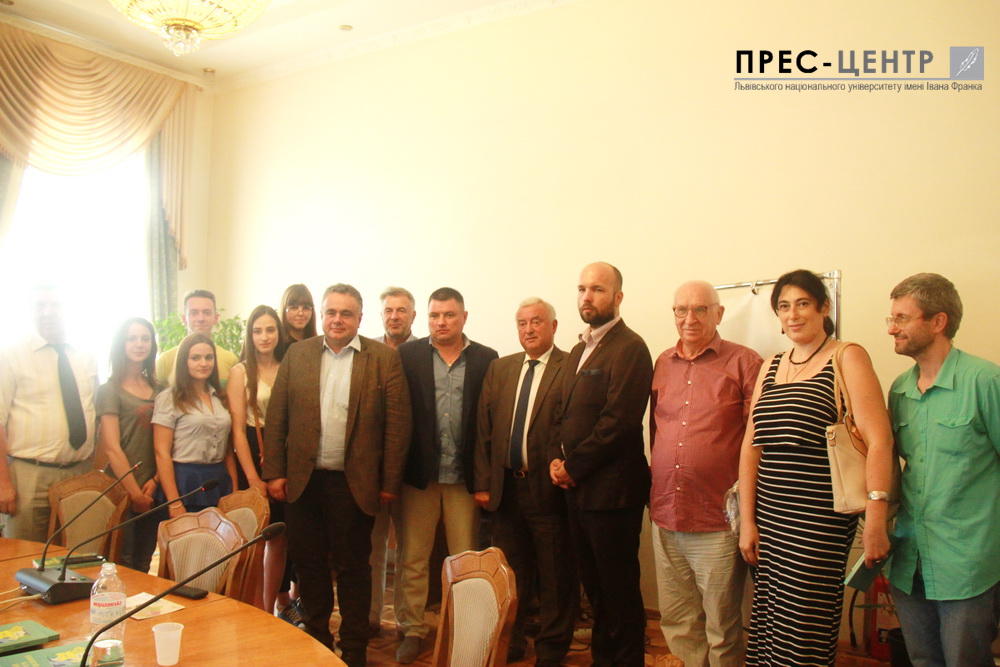
What unites Ukrainians and Poles? Why is the cooperation and mutual support of these nations essential? Tomasz Sakiewicz, a well-known Polish journalist, editor-in-chief of Gazeta Polska, tried to answer these and other questions in his book Заповіт І Речі Посполитої (The Testament of the Polish-Lithuanian Commonwealth), which was presented at the Ivan Franko National University of Lviv on 14 September 2016 as part of the 23rd Publisher’s Forum in Lviv.
Bohdan Hud, professor at the Department of International Relations and Diplomatic Service, head of the Institute for European Integration at the Ivan Franko National University of Lviv, moderator of the event, scientific editor and translator of the book, stressed the topicality of Tomasz Sakiewicz’s book in his opening speech, since it represents the views of the author not only on our shared history, but on the present day as well.
According to Bohdan Hud, the Polish journalist’s work contains a number of controversial issues that provoke discussions. Thus, the professor urged the participants of the presentation to take part in an animated discussion of the book, pointing out that nowadays the young generation perceives the tragic Polish-Ukrainian pages of the past in a completely different way.
In Bohdan Hud’s opinion, today one should focus on the concept of seeking amity between Polish and Ukrainian peoples that will eventually help to find a common view on our past. “And the future depends on the young,” said the professor.
On the basis of his own unconventional analysis of the events, Tomasz Sakiewicz presented his vision of the impact of the historical past on contemporary politics of superpowers – United States, Germany and Russia – in the Central and Eastern European region.
The cause of the fall of the Polish-Lithuanian Commonwealth, according to the Polish journalist, was the Polish-Ukrainian conflict, the fact that the Ukrainian issue had not been taken into account resulting in the 1654 Pereyaslav Treaty signed by Ukrainians and Russians, which became one of the most significant events in the Russian historiography.
“People sometimes ask me about the difference between Poles, Ukrainians and Russians. First and foremost, the difference lies in our diametrically contrary attitude to freedom. It was erased from Russian culture, since Mongolian totalitarianism and its attitude to human freedom had a considerable influence on Russians. For how else can one explain that on one side of the border people love freedom, but on the other side they don’t? Polish and Ukrainian history has a long-established tradition of democracy. And this democratic culture has been inscribed in our history,” states Tomasz Sakiewicz.
The participants of the presentation also focused their attention on the issues of vision and further development of Ukrainian-Polish relations.
Yosyp Los, head of the Department of Foreign Media and Information at the Faculty of Journalism at the Ivan Franko National University of Lviv emphasized that “without Ukraine, Poland, Belarus and the Baltic States free Europe will not exist. This is “the second leg” for Western countries.”
The meeting with the representative of the right wing of the Polish media generated a lively discussion in which both Ukrainian and Polish scholars, journalists and diplomats took an active part.